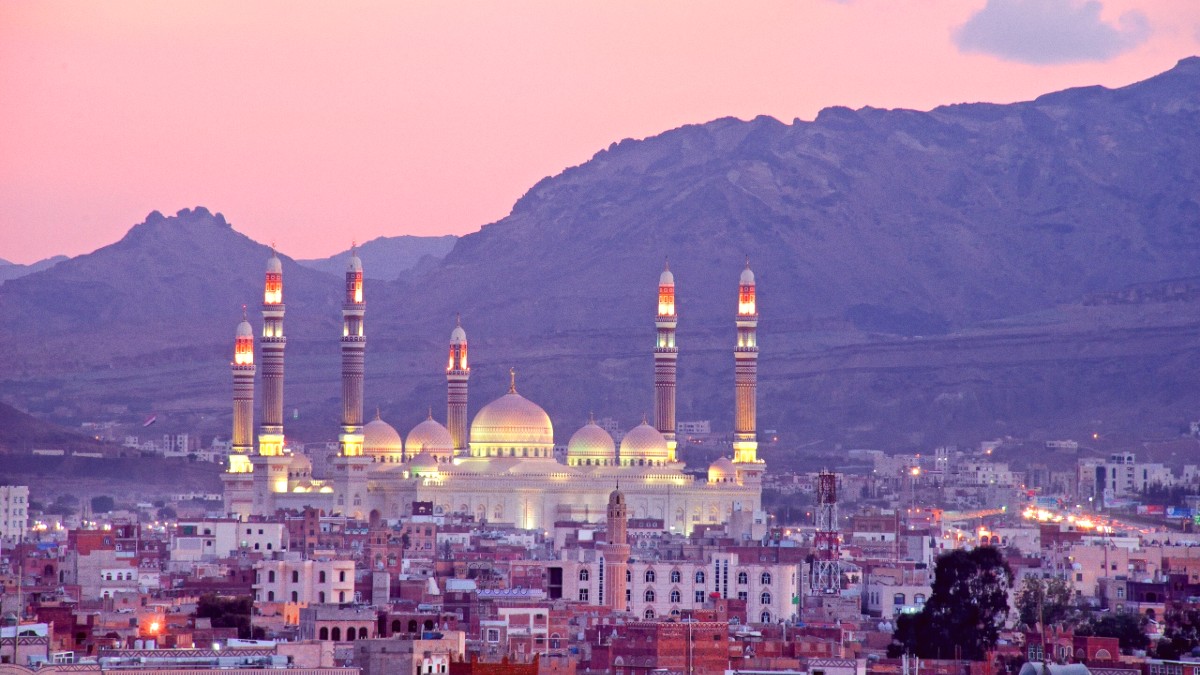
Outdoor activities are severely restricted by safety concerns throughout Yemen.
Hiking anywhere on the mainland is extremely dangerous due to active conflict lines, widespread landmines, and high risk of kidnapping.
Limited water sports are only possible in specific, potentially unsafe coastal areas or around the Socotra Archipelago. Mainland coastal areas are high-risk zones.
Activities like climbing, caving, or organized wildlife viewing are not available or safe. No infrastructure or support exists for such pursuits.
Engagement in any outdoor activities for leisure in Yemen is extremely dangerous and could have fatal consequences.
Opportunities for safe cultural immersion are severely limited for foreign visitors.
Public gatherings carry inherent security risks for all participants.
Local cultural activities continue discreetly, but public access for outsiders is not safe or possible.
Any interaction is limited to necessary communication with trusted local contacts, usually for essential work.
Spa and wellness centers, hot springs, yoga retreats, or beach clubs are not available in a tourist capacity. Access to natural therapy options is dangerous.
Live music, theater, nightclubs, and dancing are extremely limited or prohibited. Alcohol is prohibited. Being out after dark is unsafe.
Traditional markets (Souqs) exist, but navigating them can be challenging and risky due to crowds, unpredictable security, and scarcity of goods.
The conflict has severely impacted the ability to participate in typical cultural or social activities.
Spa, wellness centers, hot springs, yoga retreats, and pool clubs do not exist in a capacity accessible to foreign visitors.
Live music venues, theaters, and performance spaces are extremely limited or non-existent.
Nightclubs, dancing, and bar districts are prohibited due to the conservative social environment. Alcohol is forbidden.
Souqs exist, for example, Souq al-Milh in Sana'a. Navigating them can be challenging and potentially risky due to crowds and unpredictable security.
Traditional crafts like silverwork, Jambiyas (traditional daggers), and textiles continue to be produced, but direct purchase carries risks.
Luxury and boutique shopping are not available. Standard ethical shopping concepts are not applicable due to economic collapse.
Any venture into markets or public areas requires pre-approved security measures and constant situational awareness.
Hiking, water sports, and other adventure activities are not safe or supported.
Classes, tours, and public cultural events are not available or safe.
No traditional tourist-oriented relaxation facilities or nightlife.
Foreigners face a critically high risk of kidnapping, especially outside secure areas.
Many areas are active conflict zones with unpredictable violence.
Landmines and unexploded ordnance are widespread, making off-road travel extremely hazardous.
Any activities in Yemen are solely for essential personnel (humanitarian aid, diplomatic, journalistic work). Leisure travel is not possible or safe.